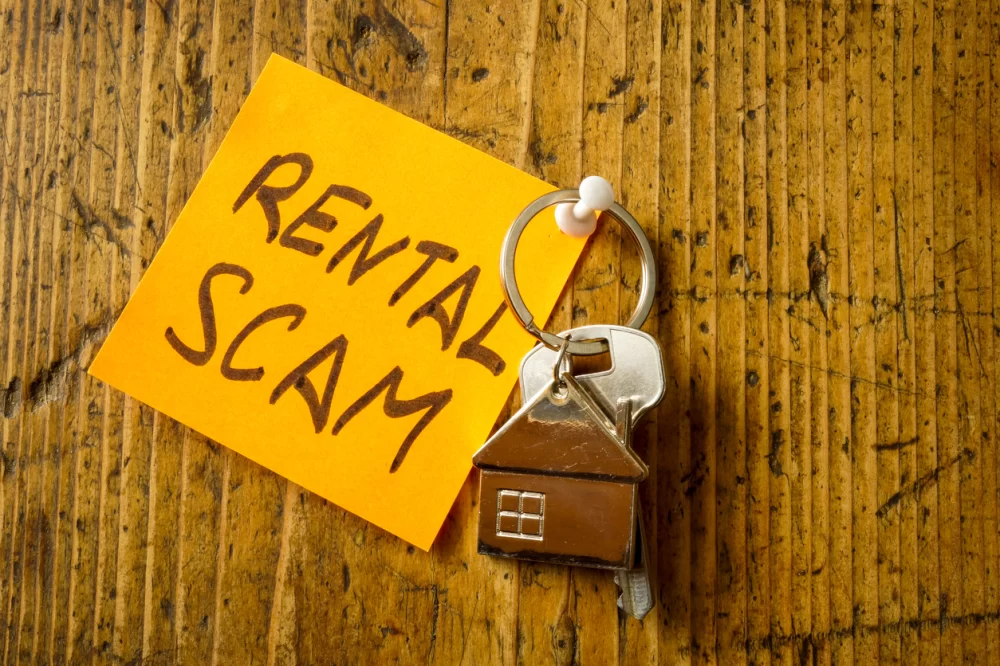
How I Learned to Avoid Scams When Renting or Buying a Property
When I first moved to the U.S., I was full of excitement—and a bit of anxiety. I had dreams of finding the perfect apartment and eventually buying a cozy home. But in the midst of all that excitement, I almost fell victim to a rental scam that could have cost me thousands. That experience opened my eyes to the importance of knowing how to protect yourself in the real estate world.
1. Recognizing Red Flags in Rental Listings
1.1 Listings That Are Too Good to Be True
One of the first red flags I encountered was a gorgeous downtown apartment listed for an absurdly low price. The pictures looked like they came out of a luxury magazine. But when I asked to visit, the supposed "owner" gave me an excuse about being overseas and insisted I wire the deposit upfront.
That’s when I learned this golden rule: if it sounds too good to be true, it probably is. Scammers often use stolen photos and fake listings to lure in unsuspecting renters. Never trust a deal that skips the basic steps of viewing and verifying.
1.2 Pressure to Send Money Immediately
Another classic scam tactic is creating a sense of urgency. I once received a message saying, "Several people are interested. If you don’t send the deposit today, someone else will get it." This tactic is meant to make you panic and act without thinking. Always take your time to verify the legitimacy of the property and the person renting it out.
2. Verifying the Landlord or Property Owner
2.1 Cross-Check Ownership Records
After nearly getting scammed, I started doing deeper checks. One of the best ways to verify if someone is truly the owner of a property is by checking public property records. Most county websites in the U.S. allow you to look up property ownership information for free. If the name doesn’t match the person you're dealing with, that’s a serious warning sign.
2.2 Google and Reverse Image Search
Scammers often use stolen photos from legitimate listings. I started using Google’s reverse image search feature to see if the same photos were being used on different listings or websites. If you see the same images linked to different properties or names, it's probably a scam.
3. Meeting in Person and Viewing the Property
3.1 Never Skip the In-Person Visit
This might sound obvious, but always visit the property before making any payments. I’ve heard horror stories of people who sent deposits only to find the property doesn’t exist or is already occupied by someone else. If the owner avoids a meeting, walk away—no matter how good the deal sounds.
3.2 Bring a Friend or Family Member
When viewing a property, especially if you're unfamiliar with the neighborhood, take someone with you. They can help spot red flags you might miss and provide a second opinion. It’s also a safety measure—just in case the meeting is a setup for something more dangerous.
4. Using Secure and Verified Platforms
4.1 Stick to Reputable Real Estate Sites
After my brush with fraud, I stopped using random classifieds and turned to platforms that verify listings and landlords. Websites like Zillow, Realtor.com, and Apartments.com have processes in place to reduce scams. While no platform is 100% safe, you're far less likely to run into trouble than on unmoderated websites.
4.2 Avoid Cash and Wire Transfers
Never pay with cash or wire transfers like Western Union or MoneyGram. These are favorite tools for scammers because they're untraceable. Use secure payment methods like credit cards, certified checks, or payments through verified platforms that offer some buyer protection.
5. Buying a Property? Here's What to Watch Out For
5.1 Work Only with Licensed Real Estate Agents
When it came time for me to buy a home, I made sure to work with a licensed realtor. I verified their license with the state’s real estate board and checked reviews and references. A legitimate agent will never rush you or skip important steps like appraisals and inspections.
5.2 Title Checks and Escrow Services
I learned that title fraud is a real threat. Always perform a thorough title search and use a reputable title company. Escrow services also provide a layer of protection by holding funds until all conditions of the sale are met. These steps might feel tedious, but they’re critical to avoid costly surprises.
6. Real Stories from the Community
I met a neighbor, Karen, who shared her own horror story. She wired $4,000 to what she thought was a landlord for a charming cottage. When she arrived to move in, the actual owner had no idea the property was even listed. Karen had to move in with relatives and is still trying to recover her money. Her story reminded me that anyone can be a target.
6.1 Don’t Be Embarrassed to Ask Questions
One lesson I’ve learned over and over is that it’s okay to be skeptical. Ask for IDs, confirm contact information, and don’t be afraid to walk away. Trust your gut—if something feels off, it probably is.
If you're currently navigating the rental or property market, take the time to research, verify, and use all the tools at your disposal. And remember, you can always come to our website Your Private Space to get tailored support and recommendations from verified professionals who care about your safety.








